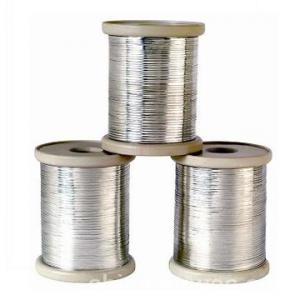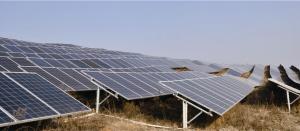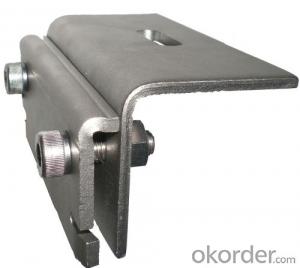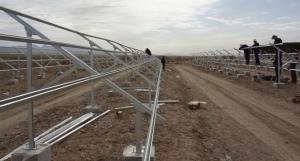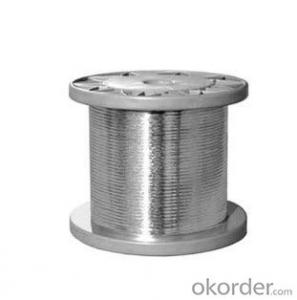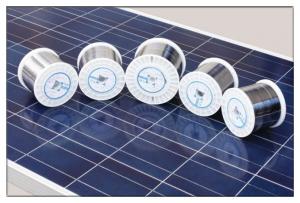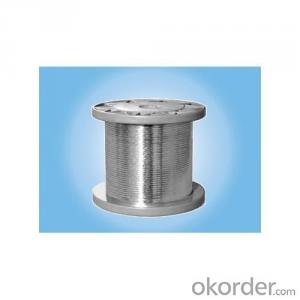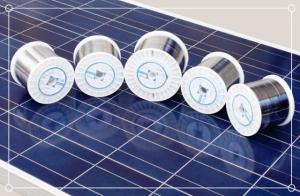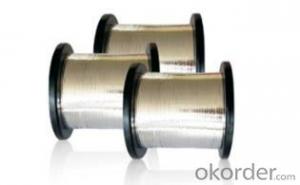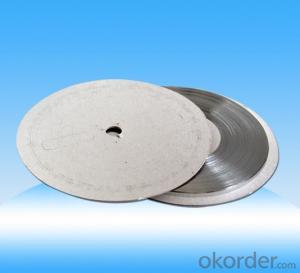Bus Ribbon-manual welding 0.35*6
- Loading Port:
- China Main Port
- Payment Terms:
- TT or LC
- Min Order Qty:
- -
- Supply Capability:
- -
OKorder Service Pledge
OKorder Financial Service
You Might Also Like
Structure
We produce custom engineered solar tabbing and bus wire helping to attain the highest efficiencies possible for each unique module design. Our Research and Development team can assist you with your needs evaluation and our world-wide manufacturing facilities are strategically located for large volume production.
Feature
The Flux should be compounded and processed in such a manner as to be uniform in quality and should be free from deleterious material and other details that will after life serviceability or appearance.
Cold Rolling Mills for manufacturing Photovoltaic (PV) Ribbon:
Cold Rolling Mills for manufacturing Photovoltaic Ribbon
This machine is for making Bare flat copper conductors which is using PV Ribbon Wire , Tinned plated flat copper conductors which is using FFC or materials and it was designed to make the best quality products with high productivity as well as easy to control.
Machine capacity
Tinned plated flat copper conductors which is using FFC
Images
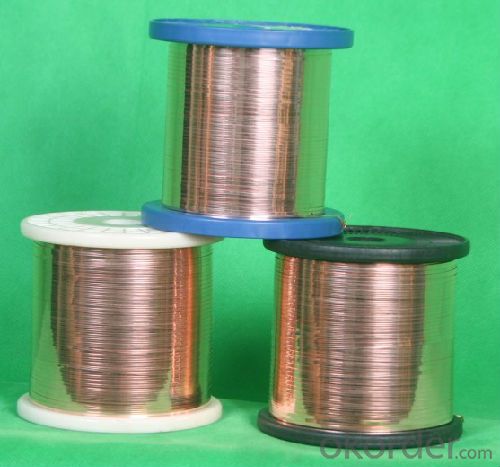
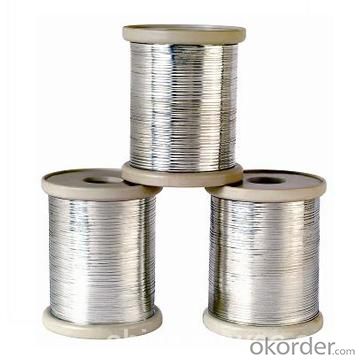
Specifications
Mechanical Property:
1,Elongation: E-Soft≥20% U-Soft≥15%
2,Tensile strength:≥170MPa
3,Side camber: L≤3mm/1000mm
4,Soldering tin melting point: 180−230°c
Electrical Resistivity of Copper:
TU1≤0.0618 Ω • m m2/m; T2≤0.01724 Ω•m m2/m
Core Copper of TU1 Off-Cu :
1,Copper Purity 9≥9.97%, Oxygen≤10ppm
2,Resistivity:ρ20≤0.017241Ω • m m2/m
Electrical Resistivity of Ribbon:
(2.1−2.5)X10-2 • mm2/m
Plated Thickness:
15-25um per side
FAQ
Q:How to guarantee the quality of the products?
A:We have established the international advanced quality management system,every link from raw material to final product we have strict quality test;We resolutely put an end to unqualified products flowing into the market. At the same time, we will provide necessary follow-up service assurance.
Q:Can we visit your factory?
A:Surely, I will arrange the trip basing on your business schedule.
Q:Which payment terms can you accept?
A:T/T,L/C,Moneygram,Paypal are available for us.
- Q: Can a solar water heater be used in areas with limited access to financing or funding for renewable energy projects?
- Yes, a solar water heater can be used in areas with limited access to financing or funding for renewable energy projects. Unlike other renewable energy projects that may require substantial upfront costs, solar water heaters are relatively affordable and have a quick payback period. Additionally, they can be easily installed and maintained, reducing the need for ongoing financial support. This makes solar water heaters a viable option for individuals and communities in areas with limited financial resources or funding for renewable energy projects.
- Q: What is the expected lifespan of the control system in a solar water heater?
- The expected lifespan of a control system in a solar water heater can vary depending on various factors such as the quality of the components, maintenance practices, and environmental conditions. However, on average, a well-maintained control system in a solar water heater can last anywhere between 10 to 20 years.
- Q: Can solar pumps be used for water supply in construction sites or building projects?
- Yes, solar pumps can be used for water supply in construction sites or building projects. Solar pumps are a sustainable and cost-effective solution that can provide a reliable water supply without the need for electricity or fuel. They can be used to pump water for various construction purposes such as concrete mixing, dust suppression, and general water needs on-site. Additionally, solar pumps are portable and easy to install, making them a practical choice for temporary water supply requirements during construction.
- Q: How does a solar panel generate electricity?
- A solar panel generates electricity through the photovoltaic effect. When sunlight hits the solar panel, it excites the electrons in the semiconductor material, creating a flow of electrons. This flow of electrons is then captured and converted into usable electricity by the solar panel.
- Q: Are solar chargers suitable for outdoor activities?
- Yes, solar chargers are highly suitable for outdoor activities. They harness the sun's energy to provide a portable and eco-friendly power source for charging various devices like smartphones, tablets, cameras, and more. They are lightweight, compact, and often waterproof, making them ideal for camping, hiking, backpacking, or any outdoor adventure where access to electricity may be limited.
- Q: Can a solar controller be used with solar-powered public transportation systems?
- Yes, a solar controller can be used with solar-powered public transportation systems. A solar controller is designed to regulate and optimize the charging and discharging of batteries connected to solar panels. In solar-powered public transportation systems, solar controllers can effectively manage the energy flow from the solar panels to the batteries, ensuring efficient utilization of solar power for the transportation system.
- Q: Can a solar water heater be used in areas with limited access to training programs?
- Yes, a solar water heater can be used in areas with limited access to training programs. Solar water heaters are relatively simple and can be installed and operated with basic knowledge and understanding. Additionally, there are numerous online resources and instructional materials available that provide step-by-step guidance on the installation and maintenance of solar water heaters, making it possible for individuals in areas with limited access to training programs to still benefit from this sustainable technology.
- Q: Can solar silicon wafers be used in solar-powered educational institutions?
- Yes, solar silicon wafers can be used in solar-powered educational institutions. These wafers are a crucial component in solar panels, which are used to convert sunlight into electricity. By installing solar panels with silicon wafers, educational institutions can harness renewable energy and reduce their dependence on traditional power sources, contributing to sustainability and environmental education.
- Q: Can solar energy systems be used for powering manufacturing facilities?
- Manufacturing facilities can definitely employ solar energy systems to power their operations. In fact, many manufacturing facilities worldwide are already taking advantage of solar energy to fulfill their power needs. Installing solar energy systems, like photovoltaic (PV) panels, on the roofs or surrounding areas of manufacturing facilities allows for the generation of clean and renewable electricity. This electricity can then be used to operate various processes and equipment within the facility. There are several advantages associated with using solar energy systems for manufacturing facilities. Firstly, solar energy is a sustainable and renewable power source that does not deplete natural resources or contribute to climate change. By utilizing solar power, manufacturing facilities can significantly reduce their carbon footprint and contribute to a greener and more sustainable future. Secondly, solar energy systems provide a consistent and reliable source of electricity, which is crucial for manufacturing facilities that require uninterrupted power supply for their operations. By generating their own electricity through solar power, these facilities can reduce their dependence on the grid and avoid potential disruptions or outages. Moreover, solar energy systems help manufacturing facilities save on energy costs in the long run. While the installation costs of solar panels may initially be high, the operational costs are significantly lower compared to traditional energy sources. Once the solar energy system is in place, the facility can benefit from free sunlight, leading to savings on electricity bills over time. It is important to note that the feasibility of using solar energy systems for manufacturing facilities may vary depending on factors such as the facility's size, available space for solar panel installation, and energy requirements of manufacturing processes. However, advancements in solar technology and decreasing costs of solar panels are making it increasingly economically viable and environmentally responsible for more manufacturing facilities to switch to solar energy systems. In conclusion, solar energy systems can effectively power manufacturing facilities, offering various benefits including sustainability, reliability, and cost savings. As the world moves towards a cleaner and more sustainable energy future, solar power presents a compelling solution for manufacturing facilities seeking to reduce their environmental impact while maintaining a dependable source of electricity.
- Q: Are solar collectors suitable for hotels and resorts?
- Solar collectors, also known as solar thermal systems, are well-suited for use in hotels and resorts. These systems utilize panels to capture and absorb sunlight, converting it into heat energy. This heat energy can then be utilized for various purposes, such as heating water for showers, pools, and space heating. Hotels and resorts have substantial energy requirements, as they constantly need hot water, air conditioning, and heating. By implementing solar collectors, they can significantly reduce their reliance on traditional fossil fuel-based energy sources. This not only results in considerable cost savings but also brings about environmental advantages. The installation of solar collectors in hotels and resorts can also enhance their sustainability credentials, attracting environmentally conscious guests who prioritize eco-friendly accommodation options. This, in turn, can improve the reputation of the hotel or resort and set it apart from competitors. Moreover, solar collectors can be seamlessly integrated into the architectural design of hotels and resorts without compromising their aesthetic appeal. They can be installed on rooftops, facades, or in close proximity to the property, making the most of the available space. In conclusion, solar collectors are an excellent and advantageous energy solution for hotels and resorts. They help reduce energy expenses, promote sustainability, and appeal to environmentally aware guests. By harnessing the power of the sun, hotels and resorts can contribute to a greener future while maintaining their commitment to comfort and service excellence.
Send your message to us
Bus Ribbon-manual welding 0.35*6
- Loading Port:
- China Main Port
- Payment Terms:
- TT or LC
- Min Order Qty:
- -
- Supply Capability:
- -
OKorder Service Pledge
OKorder Financial Service
Similar products
Hot products
Hot Searches
